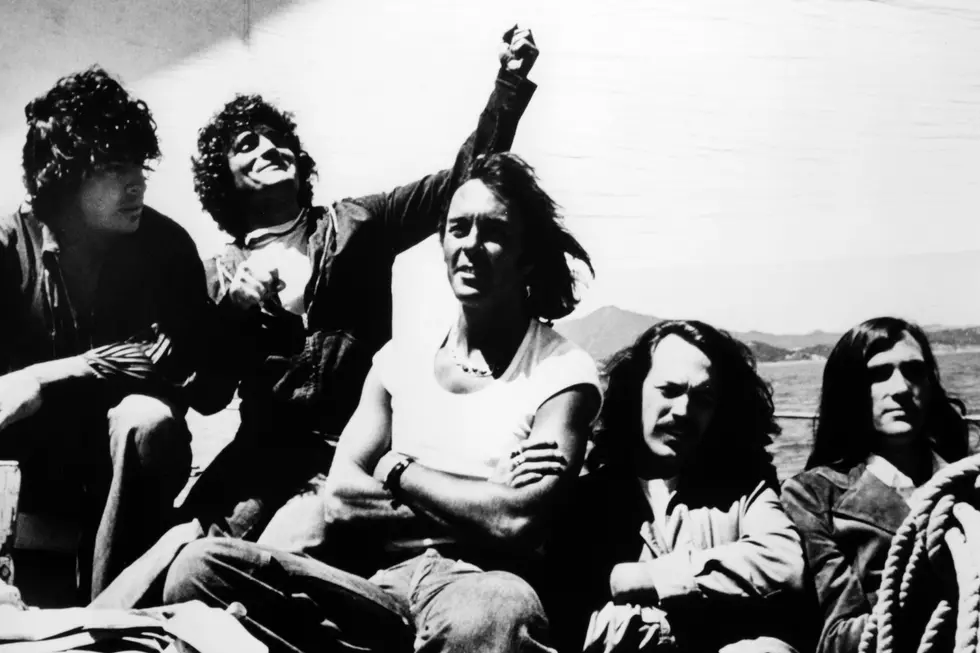
Quicksilver Messenger Service’s Gary Duncan Dead at 72
Gary Duncan, guitarist and singer with San Francisco rock icons Quicksilver Messenger Service, reportedly died on June 29 at the age of 72. It's reported that he suffered a seizure that led to a coma in Woodland, Calif.
Duncan rose to prominence as a member of the Brogues before joining Quicksilver along with Brogues drummer Greg Elmore in 1965. The band was peers of the Grateful Dead and Jefferson Airplane, and are credited by many fans for having helped define the San Fransisco psychedelic sound.
Duncan was born Gary Grubb in San Diego in 1946, with his first major musical appointment arriving with the Ratz, who appeared as an opening act for the Byrds and Rolling Stones, among others. As Gary Cole, he joined the Brogues in 1964. That band released three singles, including the garage-rock classic “I Ain’t No Miracle Worker.”
Listen to the Brogues' ‘I Ain’t No Miracle Worker’
The following year, now going by Gary Duncan, he and Elmore lined up with John Cipollina, David Freiberg, Jim Murray and, briefly, Dino Valentini, in Quicksilver. Together they developed a triple-vocal, twin-lead guitar approach to music. Despite acclaim for their album work, their highest singles chart appearance was in 1970 with “Fresh Air.” Duncan and Elmore were the only members to appear in all lineups of the band until their split in 1979. Duncan and Freiberg led various reunion lineups from 2006.
“It is with much sadness that I share the passing of one of San Francisco’s fine guitarists and notable musicians that go back to the beginnings, Gary Duncan,” city scene figure Professor Poster wrote on Facebook. “Once guitarist with the Brogues, then most notably with Quicksilver Messenger Service, where the complex interplay between himself and fellow-guitarist John Cipollina did much to define the unique contributions that made up the San Francisco Sound and based band. Rest in peace, you old Guitar Slinger. You will be remembered with fondness by all of us that saw and heard you play over the many years.”
Watch Quicksilver Messenger Service Perform ‘Fresh Air’
“In San Francisco at that period of time, practically everybody was high on something, Duncan once told ClassicBands.com. “There was a lot of LSD around. We took a lot of LSD. The audience took a lot of LSD. The music was real loose, a lot of improvisation. That's happened a lot of other times too. Because of LSD they termed it psychedelic music or acid rock. I suppose it is. I don't know if it ever expanded anybody's mind. It more than likely did a few people. I was definitely in an altered state most of the time in those days.”
Referring to the band’s turning down several record deals before finally accepting one, he said, “Really, all we cared about was having some place to live and enough to eat so we could go play. Getting involved in the music business wasn't necessarily something any of us wanted to do, and when it did finally happen, it basically was the end of everything. That was about 1967 when everybody was signed to a label. Then the mystique of San Francisco sort of disappeared. It became commercialized.”
Duncan remembered that when he "first came to San Francisco before Quicksilver started, Jefferson Airplane was already playing. You could see them and see that they were gonna be successful. I mean, they were groomed for it. The Grateful Dead was just a phenomenon. I have no idea why that happened. … They certainly developed a cult following and became really famous worldwide. Jefferson Airplane too. We didn't pursue that. Nobody really wanted to be a celebrity.”
Watch Quicksilver Messenger Service Perform ‘Mona’
Rock Stars We've Lost in 2019
More From Ultimate Classic Rock









